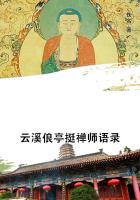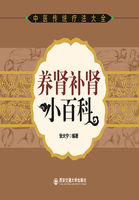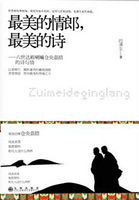And first, Louis XVth, king of France (or as he was upon the present occasion styled the baron de Gonesse), was one of those sentimental egotists who believed he loved the whole world, his subjects, and his family; while in reality, the sole engrossing object was <self>. Gifted with many personal and intellectual endowments, which might have disputed the palm with the most lively and engaging personages of the court, he was yet devoured by ennui, and of this he was well aware, but his mind was made up to meet this ennui, as one of the necessary accompaniments of royalty. Devoid of taste in literary matters, he despised all connected with the <belles-lettres>, and esteemed men only in proportion to the number and richness of their armorial bearings.
M. de Voltaire ranked him beneath the lowest country-squire; and the very mention of a man of letters was terrifying to his imagination from its disturbing the current of his own ideas; he revelled in the plenitude of power, yet felt dissatisfied with the mere title of king. He ardently desired to signalize himself as the first general of the age, and prevented from obtaining this (in his opinion) highest of honors, entertained the utmost jealousy of Frederick II, and spoke with undisguised spleen and ill-humor of the exploits of his brother of Prussia.
The habit of commanding, and the prompt obedience he had ever met with, had palled upon his mind, and impressed him with feelings of indifference for all things which thus appeared so easily obtained;and this satiety and consequent listlessness was by many construed into melancholy of disposition. He disliked any appearance of opposition to his will; not that he particularly resented the opposition itself, but he knew his own weakness, and feared lest he should be compelled to make a show of a firmness he was conscious of not possessing. For the clergy he entertained the most superstitious veneration; and he feared God because he had a still greater awe and dread of the devil. In the hands of his confessor he confidently believed was lodged the absolute power to confer on him unlimited license to commit any or every sin.
He greatly dreaded pamphlets, satires, epigrams, and the opinion of posterity and yet his conduct was that of a man who scoffs at the world's judgment. This hasty sketch may with safety be taken as the portrait of Louis XV, although much might be added; yet for the present I will confine myself to the outline of my picture, which I shall have frequent occasion to retouch in the course of my journal; it is my intention to present him in all possible lights before the reader, and I flatter myself I shall produce a perfect resemblance of the man I seek to depict. Let us now proceed to consider the duc de Richelieu.
This nobleman, when in his seventy-second year, had preserved, even in so advanced an age, all his former pretensions to notice;his success in so many love affairs, a success which he never could have merited, had rendered him celebrated; he was now a superannuated coxcomb, a wearisome and clumsy butterfly; when however, he could be brought to exercise his sense by remembering that he was no longer young, he became fascinating beyond idea, from the finished ease and grace of his manner, and the polished and piquant style of his discourse; still I speak of him as a mere man of outward show, for the duke's attainments were certainly superficial, and he possessed more of the jargon of a man of letters than the sound reality. Among other proofs of consummate ignorance he was deficient even in orthography, and was fool enough to boast of so disgraceful a fact, as though it conferred honor on him; perhaps, indeed, he found that the easiest way of getting over the business.
He possessed a most ignoble turn of mind; all feelings of an elevated nature were wanting within him. A bad son, an unkind husband, and a worse father, he could scarcely be expected to become a steady friend. All whom he feared, he hesitated not to trample under foot; and his favorite maxim, which he has a hundred times repeated to me, was, that "we should never hesitate to set our foot upon the necks of all those who might in any way interfere with our projects--dead men [he would further add] tell no tales!" There was one person, nevertheless, whom he detested and flattered at the same time, and this was Voltaire, who well repaid him in like coin. He called the duc de Richelieu, the tyrant of the tennis-court (<tripot>), and the duke returned the compliment by invariably designating him "Scoundrel" and "Poetaster";the only difference was that the duc de Richelieu only treated the poet thus in <sotto voce>, whilst M. de Voltaire sought not to conceal, either in his writings or conversation, his candid opinion of the illustrious duke and peer; and he might justly accuse the duke of ingratitude, for he, no doubt, owed a considerable portion of the reputation he enjoyed as a general, to the brilliant verses in which Voltaire had celebrated his exploits.
<La Comedie Francaise>--tr.
The marquis de Chauvelin was equally skilful as a warrior and diplomatist. Gentle, graceful, and witty, he joined to the most extreme versatility of talent the utmost simplicity of character.
Once known, he could not fail of being valued and esteemed, and the king entertained the most lively regard for him. The noble minded marquis was far from taking advantage of his sovereign's favor, far from it; he neither boasted of it, nor presumed upon it. This truly wonderful man died, unhappily, too soon for me, for the king on whom he bestowed the sagest counsels, and for foreign courts who knew and appreciated his worth. I shall have occasion to speak of him hereafter; he had a brother, a wicked little hump-backed creature, brave as Caesar, and a bitter enemy to the Jesuits, whom he did not a little contribute to overturn in the parliament of Paris, to which he belonged. The king detested this man as much as he loved and cherished the brother, and that is saying not a little.















